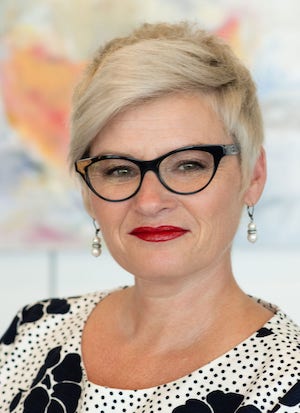OurHealth combines with Marathon Health creating a powerful, innovative force in healthcare
Early in the year, Indianapolis-based OurHealth announced it is combining with Vermont-based Marathon Health. Both companies provide onsite and nearsite health centers for employers and both have a patient-centric emphasis on technology and data that may—whether you are a patient of theirs or not—have a tremendous impact on your own healthcare in the future.
The “strategic combination” of the two companies, which will be known as Marathon Health, is now the second largest provider of worksite healthcare centers, with more than 200 health centers serving approximately 600,000 members, Marathon Health has delivered more than $1billion in savings to its clients.
In the recent announcement, Marathon Health confirmed plans to accelerate its investment in “building stronger and broader technology-enabled clinical and population health capabilities that will ultimately deliver better care and a better patient experience, while driving cost out of the system for patients and employers.”
In order to better understand how the combined company delivers better care and experiences at a lower overall cost, we spoke with Marathon Health’s Vice President of Market Development Heather Weeks about innovation and some of the ways the company deploys technology. Heather, who spent nearly a decade as a lead associate with management and tech consulting firm Booz Allen Hamilton, says she first joined Marathon because she was drawn to the clear and strong sense of purpose.
One of Heather’s chief responsibilities is looking at where the company should go and the types of enhancements and advancements that are necessary to better serve patients and the employer customers where those patients work.
“You start with the patient and the patient experience and always keep that top of mind,” Heather said in response to a question about how to tackle such a large and ambitious undertaking like changing healthcare. “You can’t put the patient at the center of everything if you simply don’t have enough time to listen and understand what’s really going on with someone. So we schedule longer visits and build our clinics onsite or closer to the point of care, and then we staff appropriately for the needs of those patients, and support both patients and clinicans with the technology to facilitate this care model.”
The technology that Marathon Health is known for is applied to serve every aspect of the relationship patients have with their healthcare providers. Whether it’s targeting patients with educational information about chronic disease, getting patients that haven’t been seen to visit a provider, making the most of the time they have scheduled or follow-ups to ensure the best possible outcomes, nearly every interaction is driven by underlying data and analytics.
Sherry Slick, CIO of Marathon Health, explained that the company is known for technology and our practical ecosystem approach, “we leverage data to manage population health and then partner with patients in their healthcare. The data is used for insights to serve our patients.
With our technology ecosystem, Marathon Health is uniquely positioned to break down the barriers of access and leverage data to drive actions to improve the health of the patients we serve while saving our clients money. We are focused on patient experience, and interacting with patients in a personalized manner.” Sherry said. “Our approach to technology has always been to ensure that the patient has what they need at the time that they need it, and our tech and tooling and tremendous focus on data drives that patient-centric philosophy.”
By removing barriers like distance and time constraints, Marathon patients often feel more empowered to start owning more of their own healthcare and, as the company’s data indicates, they start making better choices for themselves and their families that contribute to improved health.
“I think this is the part of our story that people misunderstand. The technology is important, but it’s not about the tech itself,” Sherry said.
Building on this technology framework, according to Heather, innovation at the company is constant, both through improvement to existing tools as well as with an eye towards new capabilities.
“This is a time of rapid development in healthcare technology, including everything from artificial intelligence and machine learning to big data aggregation,” Heather said. “We’re working with and experimenting with all of those technologies and constantly looking at what’s new and how it could effectively translate into better patient care. Probably the biggest new tech area for us is in predictive analytics because it directly impacts everything we do from staffing clinics to steering patient interactions and providing not only the care a patient needs today, but hopefully preparing both our patients and providers for the care needed in the near and long terms as well.”
As Marathon Health continues to grow its footprint by acquiring new employer customers and building new clinics, the company’s influence on the healthcare industry could be tremendous because it is untethered to the bureaucratic systems of the past.
“There are a lot of well-intentioned, hard working healthcare professionals out there who care deeply for their patients and that is a good thing,” Heather said. “I think the unique approach we bring that will make a difference in the future of healthcare is the way we apply technology to serve those good intentions and aid those caring professionals in providing better care, a better overall experience for patients, and at a lower cost than traditional institutions.”






